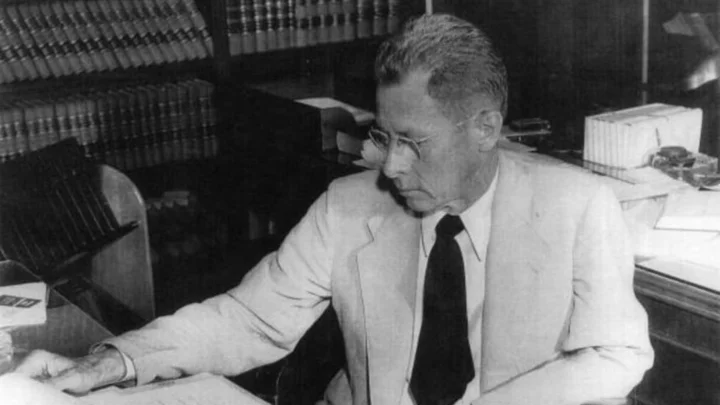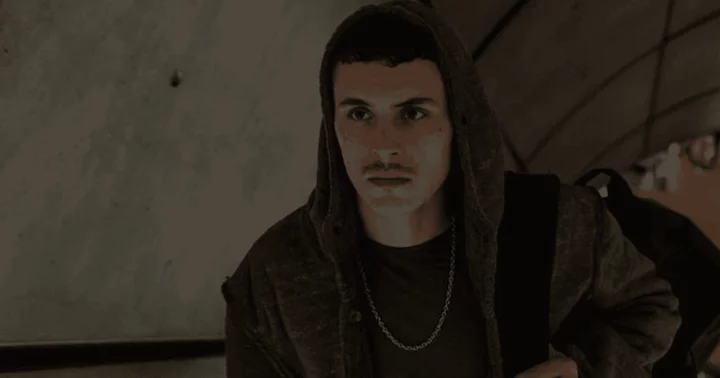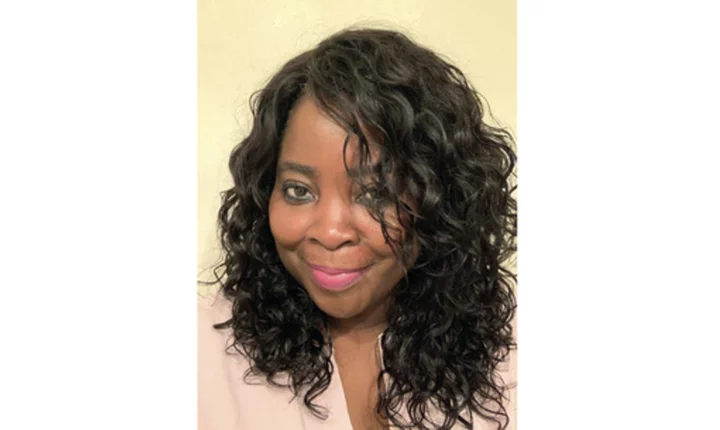“Ladies first,” the killer said, and pushed Marjorie Chillingworth into the water.
Only hours earlier, Marjorie and her husband, a respected Florida judge named Curtis Chillingworth, had been enjoying dinner with friends. It was June 1955, and the couple were looking forward to Chillingworth’s imminent retirement from the bench and a vibrant life at their waterfront cottage in Manalapan, Florida.
For reasons they couldn’t understand, the two instead found themselves roused from bed in the middle of the night by assailants, dragged into a boat, and tied down with weights. Curtis was forced to watch as his wife was pushed overboard. In their final moments together, he told her he loved her; she told him likewise. Soon, both vanished beneath the water.
It would be years before authorities could piece together the disappearances of the prominent judge and his wife. The trail led not to a common criminal, or a thief, or even one of the judge’s convicted offenders. The blood of the Chillingworths rested on the hands of the person anyone would least suspect: A fellow judge.
Blood in the Water
At the time of his murder, Chillingworth was 59 and had spent well over three decades as a judge in Palm Beach County. First appointed to county court at 24, he was the youngest judge the state had ever seen. Practice and oversight of the law ran in his family. His grandfather had been the mayor of West Palm Beach as well as sheriff of Dade County, and his father had been an attorney. In his first 13 years on the bench, Curtis issued over 20,000 orders and judgments. Only a small percentage—less than 85—were ever reversed or overturned on appeal [PDF]. To his colleagues, Chillingworth was above reproach and considered the moral compass of the entire Palm Beach County legal system.
He and his wife Marjorie, 47, spent time at their primary home in West Palm Beach as well as in Manalapan, a town so tiny it had only 29 registered voters.
The two had been invited to a party the evening of June 14, 1955. With their three daughters at home in West Palm Beach, the Chillingworths bid their goodbyes and headed to Manalapan. Curtis was expected to arrive in court the following day. When he didn’t appear—the judge was never late—authorities were sent to the cottage.
The scene was like something out of a mystery novel. There was no sign of either Curtis or Marjorie but plenty of clues that something sinister had transpired. The most obvious explanation—an accidental drowning—was immediately ruled out, as their swimsuits were dry and untouched. In their bedroom were the clothes they had been wearing at the party. The two beds (a common sleeping arrangement for couples of the era) were unmade and fans were running. Their pajamas were missing, which meant that the two had almost surely returned to the cottage and fallen asleep before someone interrupted them—someone who didn’t want to be seen, because the flood light had been smashed. Droplets of blood dotted a path from the cottage to the water. Remnants of tape were also found, which were likely used to restrain them.
Had it been robbery? Unlikely: There was still money in Curtis’s wallet, and cash in Marjorie’s purse.
The most salient theory was kidnapping. The Chillingworths were well off, and authorities theorized that perhaps a greater financial motive was in play. Murder was, at least initially, set aside. “Had anyone intended to kill them, they would have done so right then and there and not bothered to carry them off,” state attorney Phil O’Connell said.
Thanks to Curtis’s stature in the community and his many friends in law enforcement, the search for the Chllingworths was extensive. Helicopters were dispatched to surveil the area for any sign of them. A reward totaling $179,000 was offered—over $2 million in today’s dollars.
But there was little physical evidence and no witnesses. The cottage was 300 yards away from its nearest neighbor, and the blood on the property wasn’t a match for Curtis, making even that a mystery. Police could only speculate it was Marjorie’s, as she had no blood type on record.
No leads materialized, and the case grew cold. Curtis and Marjorie were declared legally dead in 1957. Things wouldn’t warm up again until a man known as “Lucky” began talking.
A Lucky Break
Floyd “Lucky” Holzapfel had lived more than one life. The 36-year-old had been a wartime paratrooper, a police officer in Oklahoma City, and a Young Republican Club organizer. On the surface, he seemed reputable. But Holzapfel was also a bookmaker, armed robber, and alleged rapist. Of the many dark stories that populated his life, none were quite as malevolent as his involvement in the Chillingworth murders.
Holzapfel’s undoing began in 1958, when a moonshiner named Lew Gene Harvey was found dead in a canal, his body weighed down in an attempt to keep him under water. He had been shot. More notably, his wrists had been taped with a similar type of adhesive used on the Chillingworths. When Florida Sheriff’s Bureau agent Henry Lovern began trying to connect the two cases, he found that Harvey had worked with a man named George Lincoln. And Lincoln knew Holzapfel.
It was a criminal network that Lovern wanted to explore. So he enlisted a bail bondsman named James Yenzer, who knew both Lincoln and Holzapfel. Lovern explained to Yenzer that there was still reward money outstanding for the Chillingworth murders. If he could get someone to talk, there would be a payoff.
Yenzer rekindled his friendship with Holzapfel, who even cut the bondsman in on a planned carjacking. Yenzer told Lovern, who had police waiting for Holzapfel. “Lucky” was convicted of that crime but won a retrial. Holzapfel, a free man once more, was worked over further by Yenzer and James Wilber, another bondsman whom Lovern had enlisted to help. Finally, Holzapfel began to talk about the disappearance of Judge Curtis Chillingworth and his wife. Later, in a hotel room, Holzapfel—who had been plied with booze—explained the story in detail.
The mastermind, he explained, was Joseph Peel, Jr., a Palm Beach County municipal judge who had one foot on each side of the law. As a jurist, he was a respected figure in the area. But his ethics were unworthy of the bench. Peel’s hustle was in tipping off criminals to pending police raids on their gambling, lotto, or liquor establishments, which he had knowledge of because he had to sign off on the warrants. As soon as police presented Peel with a request, he could turn around and warn his underworld connections, typically for a cash reward. As a judge, he made $3000 annually. As a racketeer, he made $3000 a week.
Peel didn’t go to any great lengths to hide his illicit activity. As a lawyer, he once represented both sides of a divorce, and he botched other cases as well. His dubious activities came to the attention of Chillingworth, who found his conduct intolerable. The senior judge was about to rule on another mishandled divorce case involving Peel, which would have derailed Peel’s plans to eventually make a run as governor. That’s when Peel decided the judge would have to disappear.
Peel hired two local criminals: Holzapfel and Lincoln. For $2500, the men agreed to murder Curtis. They rented a boat from nearby Riviera Beach, took it ashore late on June 14, and knocked on the front door of the cottage. They had concocted a story about being run aground on their boat and made a perfunctory attempt to make sure they had the right person.
“Aren’t you Judge Chillingworth?” Holzapfel asked.
“Yes, I am,” the judge said.
They dragged the couple from the cottage at gunpoint and tied them up with adhesive tape. At one point, Majorie screamed—and Holzapfel responded by hitting her in the head with the butt end of his gun, leaving drops of blood behind. When the couple was secure, Lincoln and Holzapfel forced them into the boat. A little more than two miles out, the two weighed them down with lead, ignoring Curtis’s offer to spare their lives for $200,000. Marjorie was first, Curtis second. The judge managed to keep his head above water, but it was to little avail.
“He was such a good swimmer, he was able to make himself float, even with weights,” Holzapfel said later. “So Bobby hit him on the head and he went under.”
A short while later, one of the men phoned Peel with a coded phrase: “The motor is fixed.” It meant that Curtis Chillingworth was out of the picture.
Justice Delayed, Not Denied
The following year, Holzapfel served as Peel’s muscle a second time. According to TIME, Holzapfel agreed to give Peel’s law partner, Harold Gray, a vicious beating with an eye on collecting a $100,000 life insurance policy if he died. Gray survived, and Peel escaped any punishment in exchange for giving up his license to practice law.
Holzapfel related his story to Yenzer and Wilber so freely because his friends had told him Peel was looking to kill him next. Holzapfel was unaware that authorities were in the next hotel room over, recording every word.
“Lucky” was, predictably, out of anything resembling luck, and was arrested. His saving grace was that the taped confession would not be admissible in court. But his accomplice, Bobby Lincoln, was already in prison on a moonshine charge and was eager to turn on his partner. Lincoln was able to corroborate the details Holzapfel had provided and was given immunity, including for his presumed involvement in the murder of Lew Gene Harvey, for his testimony.
The big fish, of course, was Peel. Though he fled to Tennessee, he was quickly located, tried, and found guilty. In his motion for a retrial, Peel presented an affidavit from a woman named Alice Griggs, who swore she had seen Curtis Chillingworth three months after he was presumed murdered.
Griggs’s statement held little interest for the court. Peel, who was paroled after 21 years in prison, died in 1982, making a deathbed confession about his role in the murders after decades of protesting his innocence. Holzapfel died in 1996 behind bars. Lincoln, who helped make the state’s case in the absence of any bodies, lived as a free man until he died in 2004 at age 80.
While Lincoln’s admission helped bring closure to the case, his role in it was never forgotten by the Chillingworth family. When informed of his death, the couples’ daughter, Ann, offered a brief comment.
“I’m glad he’s dead,” she said. “I wish he had died 50 years ago.”
This article was originally published on www.mentalfloss.com as Curtis Chillingworth, the Florida Judge Who Vanished From the Bench.









